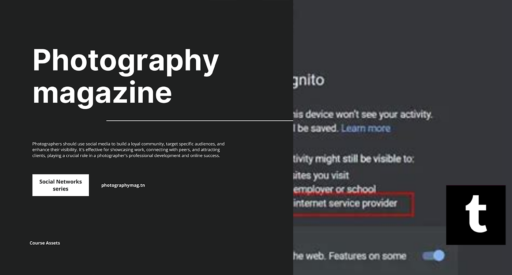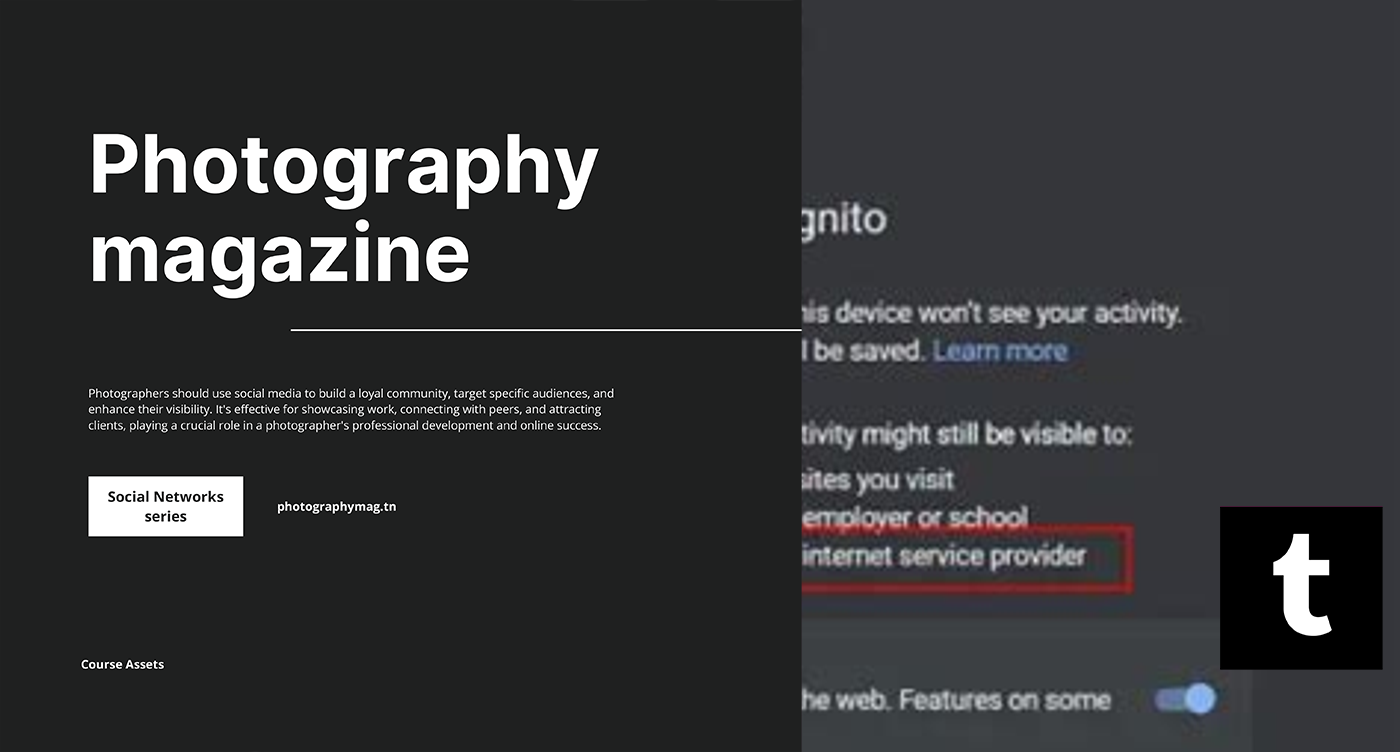Can Your ISP See Which Tumblr Pages You Visit? Let’s Dive In!
Well, let’s cut to the chase: Yes, your Internet Service Provider (ISP) can indeed see which Tumblr pages you visit. Now, before you start waving your arms in horror and clutching your anonymity like a stuffed teddy bear (we’ve all been there!), let’s unpack this a little, shall we?
The reality is, when you fire up your computer, tablet, or that ancient flip phone, your device connects to the internet through your ISP. Think of your ISP as the postal worker of the internet—without them, your data requests would just sit in an empty mailbox somewhere, collecting dust and provoking existential dread. They play a pivotal role in routing your internet traffic (like a traffic cop for data) between your cozy little corner of the internet and the vast online world.
How Does Your ISP Track Your Online Activities?
Your ISP sits between you and all the websites you want to visit. Here’s the breakdown of how much of your internet browsing experience they can actually monitor:
- Data Routing: When you visit a Tumblr page, your request journeys through your ISP’s servers. They log your traffic—making it a tad easier for them to see exactly where you’re going, similar to how a street vendor can see which tasty treats you’re eyeing as you stroll by.
- DNS Queries: Every time you type “www.tumblr.com” into your browser, your ISP translates that into an IP address through DNS (Domain Name System) servers. Spoiler: They can see every single one of your requests. Yes, they are like that nosy neighbor who always peeks through your window.
- Logging: ISPs may log your browsing habits and keep records. This can be a tad creepy! While they may claim it’s for network management and maintenance, there’s a certain tinge of Big Brother vibes here.
What Exactly Can Your ISP See?
When it comes to Tumblr, here’s what your ISP can see:
- Web Domain: Your ISP knows when you visit “tumblr.com” but not the precise pages you scroll through.
- IP Address: They can identify your IP address, which is like your home address on the internet.
- Time of Access: They can timestamp when you visit the sites—and yes, they’re probably noting your late-night scroll habits.
- Data Usage: They keep tabs on how much data you’re consuming while you’re deep in the abyss of cat gifs and memes.
The good news is—*drum roll, please*—ISPs can’t see the specific pages you visit or the content that you view on those pages. So, they can’t track down your love for that one, obscure, cat-themed Tumblr blog…yet. For now, at least!
How to Secure Your Browsing on Tumblr
Feeling like you might start an underground Tumblr browsing club after learning this? Relax! There are ways to keep your online activities from the prying eyes of your ISP. Here’s the game plan:
1. Use a VPN
A Virtual Private Network (VPN) can cleverly hide your browsing activities from your ISP. When you connect to a VPN, your data traffic gets encrypted, and your ISP only sees that you’re connected to the VPN server—like slipping through the cracks of your overly judgmental high school friend group.
2. Encrypted Browsers
Consider using privacy-oriented browsers like Brave or Firefox with privacy settings cranked up. They help to anonymize your data traffic and reduce exposure. Think of them as your trusty bodyguards, shielding you from unwanted attention.
3. HTTPS Everywhere
This chrome extension ensures that you’re connecting to sites via HTTPS (a secure way of browsing). If you see those lovely little green locks, it means your connection is encrypted. Just remember, it’s like putting on sunscreen before hitting the beach—better safe than sorry, right?
4. Use Privacy-Focused Search Engines
Ditch good old Google for search engines like DuckDuckGo. They don’t track your searches, allowing you to search up countless ways to make the perfect avocado toast without judgment!
5. Clear Your Cookies
Cookie monsters beware! Clearing your cookies regularly can help limit the amount of data that gets stored. Think of it as giving your browsing environment a much-needed spring cleaning. Who doesn’t love a clean slate?
Can ISPs Actually Sell Your Data?
Ah, the million-dollar question! Technically, your ISP can monetize your data. They might sell aggregated, anonymized data to advertisers. So while they can’t pinpoint your flip through Tumblr, they can see trends and habits based on their compiled user data. That’s like studying the weird trends of a room full of explorers and making a marketing strategy based on your combined love for coffee and houseplants.
The legislation varies from one country to another, but it’s safe to avoid oversharing on the internet in general. Definitely browse with caution, especially if you’re the type to share deeply personal stuff or your secret recipe for weird pasta salad.
Final Thoughts: Happy Browsing!
So the bottom line is: yes, your ISP can see some of your online activities, but they can’t dive deep into the exact pages you’re perusing on Tumblr. Next time you’re binge-watching animal videos or saving memes for that future text thread, remember that a few tactical moves can keep you safer.
With a good mix of VPN usage, secure browsing habits, and being judicious about data sharing, you can remain blissfully and notably under the radar. Now go forth, my internet-savvy friend, and explore Tumblr without fear (well, mostly)!
Don’t forget: as you wade through the endless stream of cat memes and aesthetically awkward blogs, sprinkle your browsing with a dose of privacy. Keep it playful, casual, and just a tad bit cheeky!





